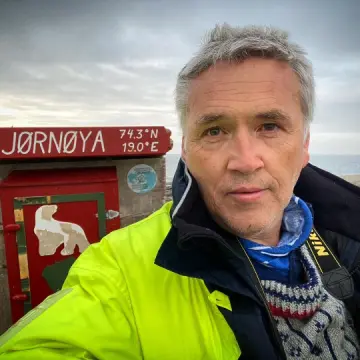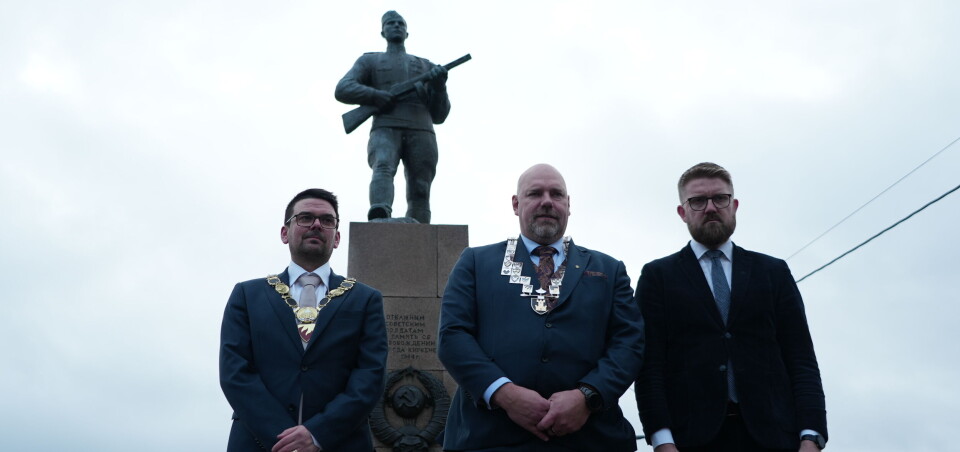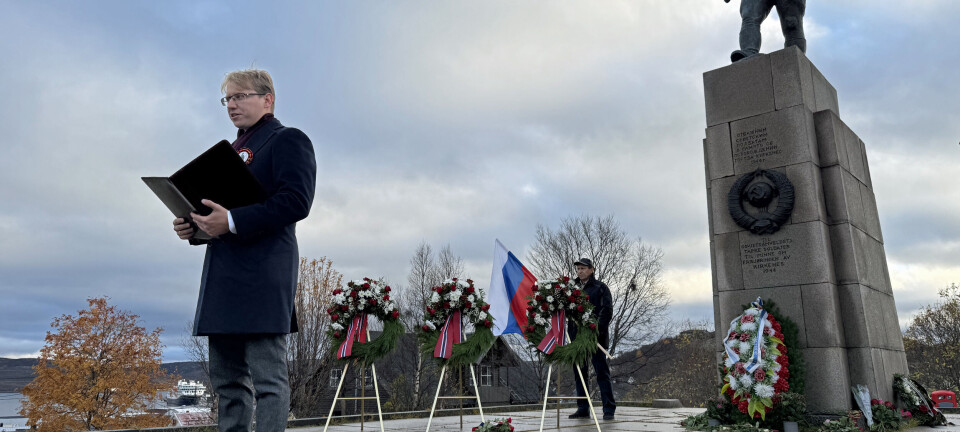OPINION
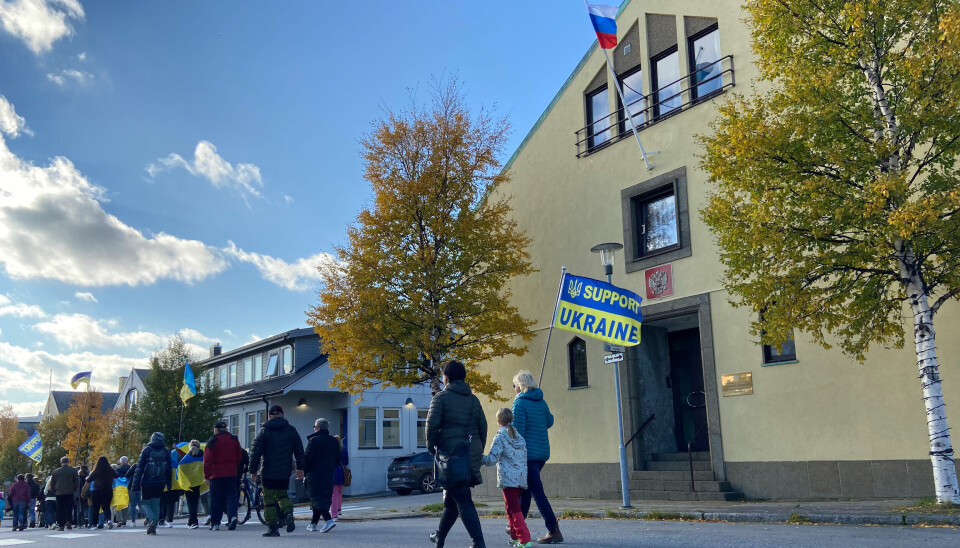
It’s high time to close Russia’s Consulate General in Kirkenes
Conventional wisdom holds that diplomatic channels are the last you should close in times of tensions. Up north, where small-state Norway borders empire-building Russia, you would think diplomats can help lowering tensions. At least on a regional level.
The facts tell a different story.
Moscow’s Consulate General in Kirkenes takes no role in dialogue. It’s main mission - it appears - is to stir tensions, spread fake narratives about World War II, facilitate for grey-zone operations and serve vodka to the small part of the Russian diaspora who support the war against Ukraine.
It should be closed. Like almost all the other Russian Consulate Generals in the Nordic countries since 2022. The only one still open in addition to Kirkenes is in Mariehamn, the capital of the Åland Islands.
The local Kirkenes mayor, whose office is across the parking lot from the yellow consulate building, is disinterested in talking to a Consul General that propagates the policy of the war criminals in the Kremlin.
Others, in public services, academia, culture, and businesses, who for decades were engaged in Russia-Norway cooperation in the borderland, have all turned their back on the Consulate General. If the foreign ministry in Moscow had any hope it could claim a sphere of influence over its northern neighbor, the full-scale invasion of Ukraine killed that ambition.
Norway does not border a different Russia than Ukraine does.
For locals in Kirkenes, the war is very close. A stone’s throw from the border you find the homes to two of Russia’s most brutal units fighting on the killing fields in eastern Ukraine; the 200th Motorized Rifle Brigade and the 61st Naval Infantry Brigade. Olenya airfield, a mere 200 kilometers from the Norwegian border, is frequently sending long-range missile carriers targeting civilian infrastructure and apartment buildings in Ukraine. It was Tu-95MS bombers from Olenya that this spring bombed the children’s hospital in Kyiv.
The Consulate General is today a tool of a Russia that chose war over diplomacy and dialogue.
A few weeks ago, the door for consular services was closed. Although lights are on and the diplomatic cars continue to drive back-and-forth over the border, Russians living in northernmost Norway now have to travel to the Embassy in Oslo. Dealing with consular affairs and paper formalities for its own citizens are symptomatically not a priority. Russia gets too few diplomats accredited to Norway, the foreign ministry in Moscow argued. Simultaneously, the Consul General in Kirkenes spend his time traveling around in northern Norway propagating the selective and highly politicized World War II memory policy of the Kremlin, connecting the Red Army’s fight against Nazi-Germany 80 years ago with Russia’s ongoing warfare in Ukraine.
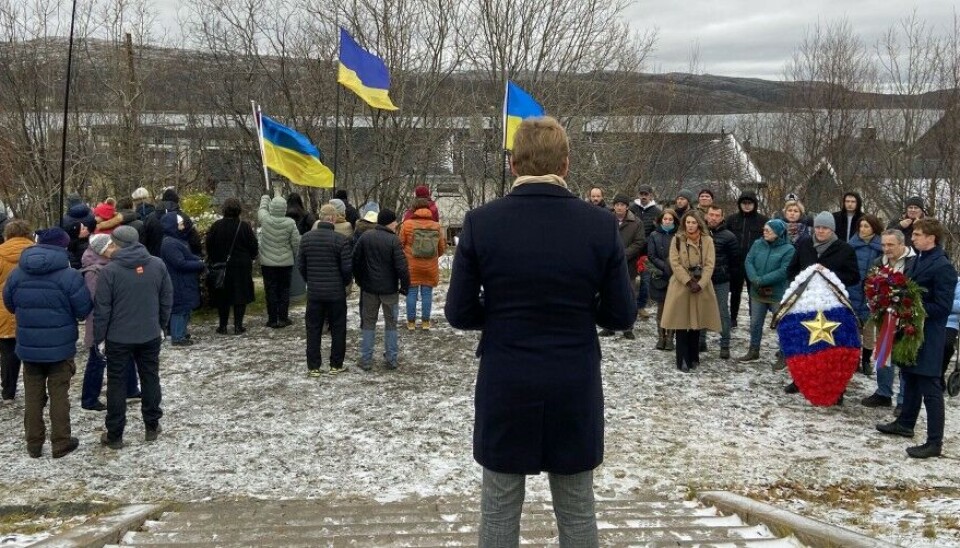
The importance for Moscow of having a Consulate General to stir tensions in the Norwegian-Russian borderland has been highlighted three times in recent months by foreign ministry spokesperson Maria Zakharova.
“Attacks on the military memorial efforts of Russian diplomats are becoming increasingly frequent in Norway,” Zakharova said in her infamous undiplomatic language.
This week, she made clear that the north is not an area for dialogue and low tensions. “Unfortunately, Norway has firmly established itself as one of the most hostile nations in the way it has been treating Russia lately, and has sought to escalate confrontation in the Arctic.”
The facts tell a different story.
It is Russia's military that on purpose is jamming GPS signals in the Norwegian border region, jeopardizing civilian aviation and search- and rescue services. It is the Northern Fleet that frequently menaces Norwegian fishing vessels in the Barents Sea, including in Norwegian Exclusive Economic Zone. Russia was behind the cyber-attack on the email system in the Norwegian parliament. It is FSB that pushed migrants across the border in a well-coordinated hybrid operation. It is Russia’s foreign intelligence that sends grey-zone operatives into the Nordic countries to recruit locals and map critical infrastructure and military installations.
All above have been reported in detail by the Barents Observer.
It is not strange then that Russia’s Consulate General in Kirkenes has expressed deep unsatisfaction about how we conduct our journalism. Freedom of expression and independent media are the biggest threats to the Kremlin’s current path towards totalitarianism.
The Consulate General has become an instrument for a ruthless regime.
The diplomatic mission was established in 1993 as part of a bilateral agreement allowing for Norway to open a Consulate General in Murmansk. Aimed at facilitating the Barents cooperation and increased businesses, the two consulates were beneficial for the thousands of people in the north that believed in cooperation in a post-Cold War era. The Barents cooperation was substantially weakened when Vladimir Putin in 2014 ordered annexation of Crimea and sent troops into eastern Ukraine. Its final death came with the full-scale invasion in February 2022.
It is impossible to see re-establishment of cross-border formal contacts before the Kremlin stops the war and return to Ukraine all territories of the 1991 border, and those responsible for domestic human right crimes in Russia and war-crimes in Ukraine are punished.
Respect for international law is a must before opening the next chapter.
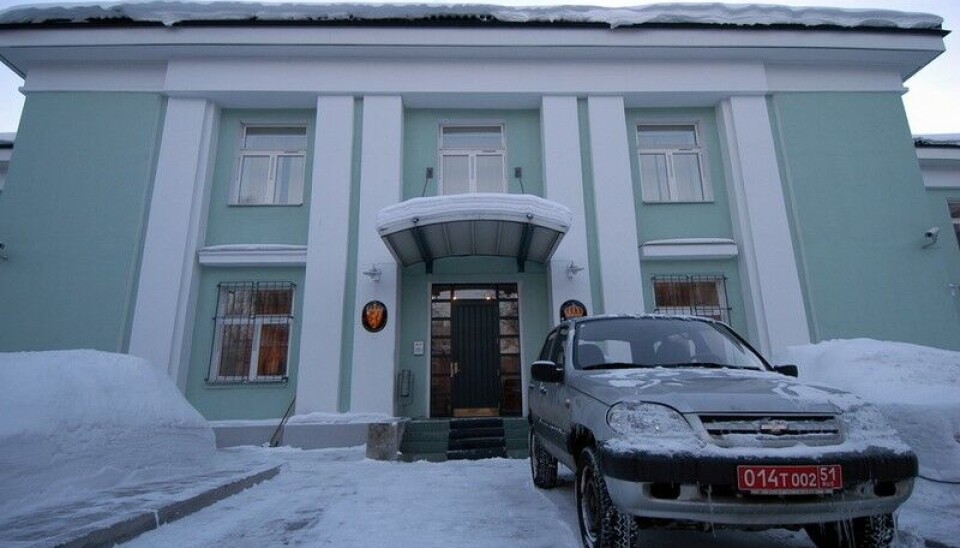
For security reasons for the personnel, Norway closed its Consulate General in Murmansk in July 2022. In diplomatic language Oslo said it will open again when the situation allows for it. The foreign ministry is known for not rocking the boat when waves of tensions with Russia get high. Right now, however, it is hard to sit still too long as the boat capsizes.
In January 1993, Russia’s first post-Soviet foreign minister, Andrei Kozyrev, came to Norway and signed the Kirkenes declaration with his Nordic colleagues. The document highlighted that “partnership is now replacing the confrontation and division of the past.”
The same Kozyrev’s first reaction to the full-scale war against Ukraine, was to call “on all Russian diplomats to resign in protest.”
“Dear diplomats of Russia, you are professionals and not cheap propagandists. When I worked in the Foreign Ministry, I was proud of my colleagues. Now it is simply impossible to support the bloody fratricidal war in Ukraine,” Andrei Kozyrev wrote on Twitter (X).
The Barents Observer could add: If any of the personnel with the Consulate General in Kirkenes want to hand over any files connected to recent years’ grey-zone operations before the mission closes, we will be happy to report.

